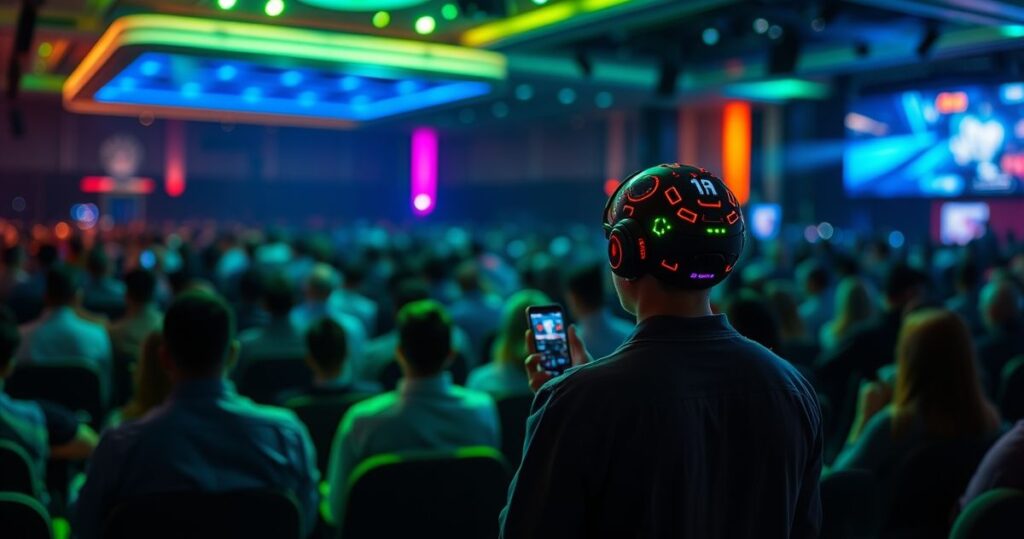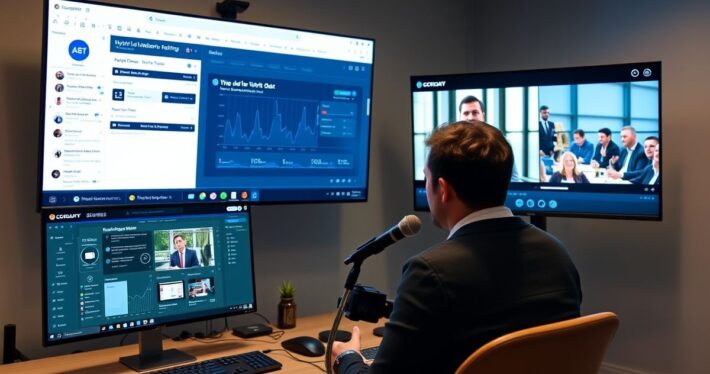How AI can anticipate attendee needs during live events.

In the fast-paced world of live events, attendee satisfaction is everything. But how do you anticipate what your audience needs before they even realize it? Enter AI—the game-changer that’s revolutionizing the way we plan, execute, and optimize live events. From predicting engagement patterns to personalizing experiences in real-time, AI empowers event organizers to stay one step ahead. Let’s dive into how this technology is reshaping the landscape and what it means for your next event.
The Power of AI in Live Events: Beyond Guesswork
Gone are the days of relying on post-event surveys to figure out what worked and what didn’t. AI allows us to collect and analyze data in real-time, giving us insights into attendee behavior, preferences, and pain points. Think of it as having a seasoned event planner who can instantly adapt to the needs of every single attendee. Sounds like magic? It’s not—it’s just smart technology doing what it does best.
Now, here’s where it gets interesting. AI doesn’t just react to data; it predicts. By analyzing patterns from past events, social media interactions, and even real-time feedback, AI can anticipate attendee needs before they become evident. For example, if attendees are struggling to navigate a complex event schedule, AI can suggest personalized itineraries. If engagement drops during a session, it can nudge the host to switch things up. The result? A seamless, tailored experience that keeps attendees hooked.
How AI Anticipates Attendee Needs: Key Use Cases
1. Personalized Recommendations
Imagine attending a conference with hundreds of sessions. How do you choose? AI-powered recommendation engines can analyze an attendee’s profile, interests, and past behavior to suggest the most relevant sessions, speakers, and networking opportunities. It’s like having a personal concierge for every attendee.
2. Real-Time Engagement Monitoring
AI tools can track attendee engagement during sessions—through facial recognition, chat activity, or even sentiment analysis. If the system detects waning interest, it can alert the speaker to adjust their delivery or suggest interactive elements like polls or Q&A.
3. Predictive Analytics for Event Flow
AI can predict bottlenecks before they happen. For instance, if registration lines are getting too long, the system can suggest opening additional check-in stations. Similarly, it can anticipate which sessions will be overcrowded and recommend alternatives to attendees.
4. Dynamic Content Adjustments
Ever noticed how some sessions just don’t land? AI can analyze attendee feedback in real-time and suggest tweaks to the content. For example, if attendees seem confused during a technical presentation, the system can prompt the speaker to simplify their explanation or provide additional resources.
5. Enhanced Networking Opportunities
AI can analyze attendee profiles and interests to facilitate meaningful connections. Whether it’s suggesting one-on-one meetings or group discussions, AI ensures that attendees don’t leave without making valuable connections.
Real-World Example: AI in Action
Let’s take a look at a case study from a recent tech conference. The organizers used an AI-powered platform to monitor attendee engagement throughout the event. The system analyzed data from multiple sources—session attendance, chat activity, and even facial expressions—to create a comprehensive engagement score for each session.
One session, in particular, started strong but saw a drop in engagement halfway through. The AI platform detected this in real-time and sent a notification to the speaker, suggesting they incorporate a live demo to re-engage the audience. The result? Attendee satisfaction scores for that session skyrocketed, and the feedback was overwhelmingly positive.
Challenges and How AI Overcomes Them
Let’s be honest—implementing AI isn’t without its challenges. Data privacy concerns, technical complexities, and the fear of over-automation can make organizers hesitant. But here’s the thing: when done right, AI enhances the human touch rather than replacing it.
For instance, while AI can suggest personalized recommendations, it’s up to the organizer to curate the final experience. And yes, data privacy is a valid concern, but modern AI platforms are designed with robust security measures to protect attendee information.
How to Leverage AI for Your Next Event
Ready to harness the power of AI? Here’s a step-by-step guide to get started:
- Define Your Goals: What do you want to achieve with AI? Improved engagement? Better networking? Streamlined logistics? Start by identifying your key objectives.
- Choose the Right Tools: There are countless AI platforms out there—pick one that aligns with your goals and budget. Look for features like real-time analytics, personalization, and predictive capabilities.
- Integrate with Existing Systems: Ensure the AI platform works seamlessly with your event management software, registration systems, and other tools.
- Test and Iterate: Run a pilot event to test the AI tools and gather feedback. Use this data to fine-tune the system before your main event.
- Train Your Team: Make sure your team understands how to use the AI tools effectively. This includes interpreting data, making real-time adjustments, and addressing any technical issues.
The Future of AI in Live Events
The possibilities are endless. Imagine AI-powered avatars greeting attendees, virtual reality experiences tailored to individual preferences, or even holographic speakers interacting with the audience. While these may sound futuristic, they’re closer than you think.
As AI continues to evolve, so will its role in live events. The key is to embrace the technology while keeping the human element at the forefront. After all, events are about connection—and AI is here to make those connections stronger, smarter, and more meaningful.
Final Thoughts
AI isn’t just a buzzword—it’s a transformative tool that’s reshaping the way we approach live events. By anticipating attendee needs, enhancing engagement, and optimizing logistics, AI ensures that every event is a resounding success. So, whether you’re planning a small webinar or a massive conference, it’s time to harness the power of AI. Your attendees (and your bottom line) will



